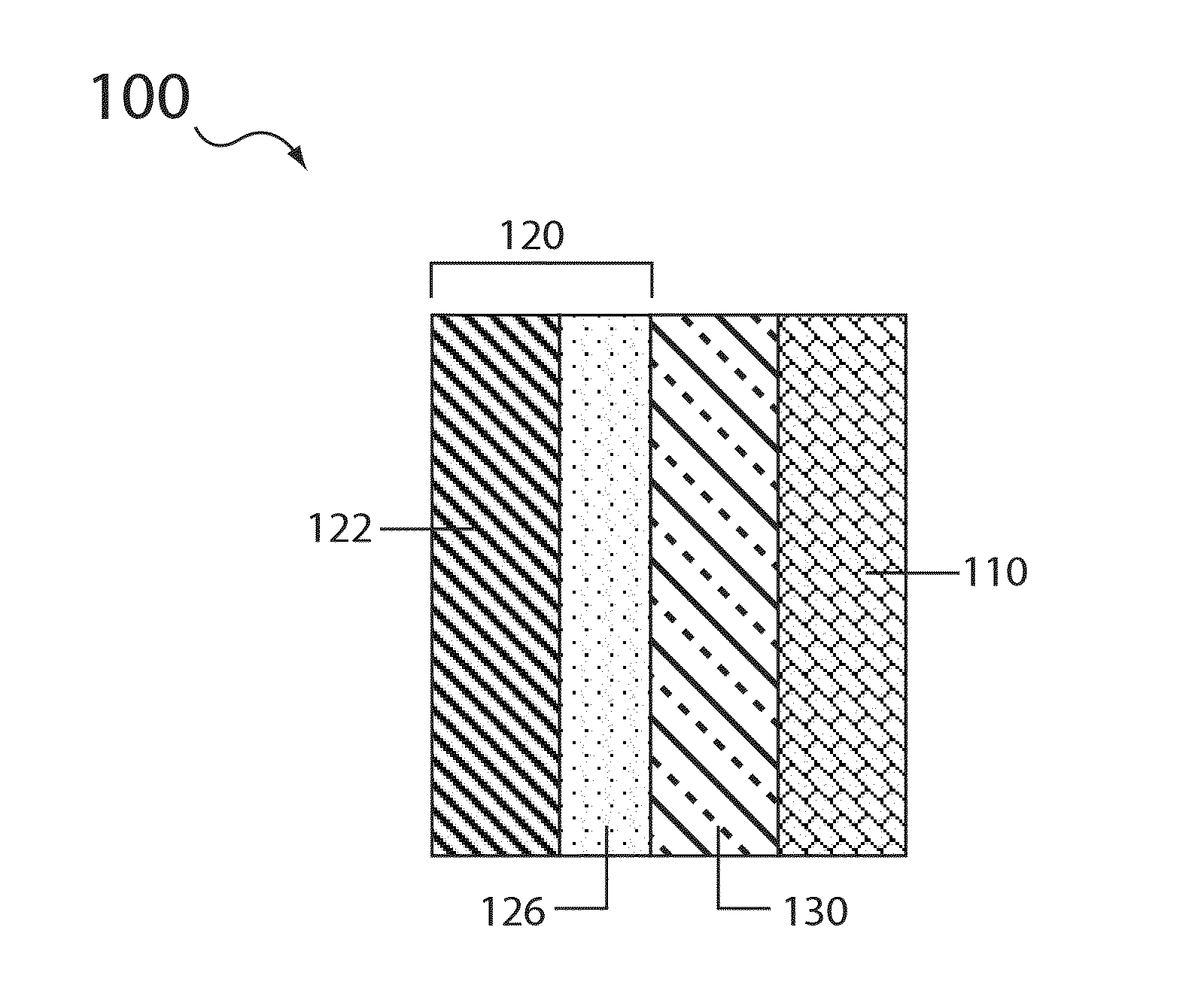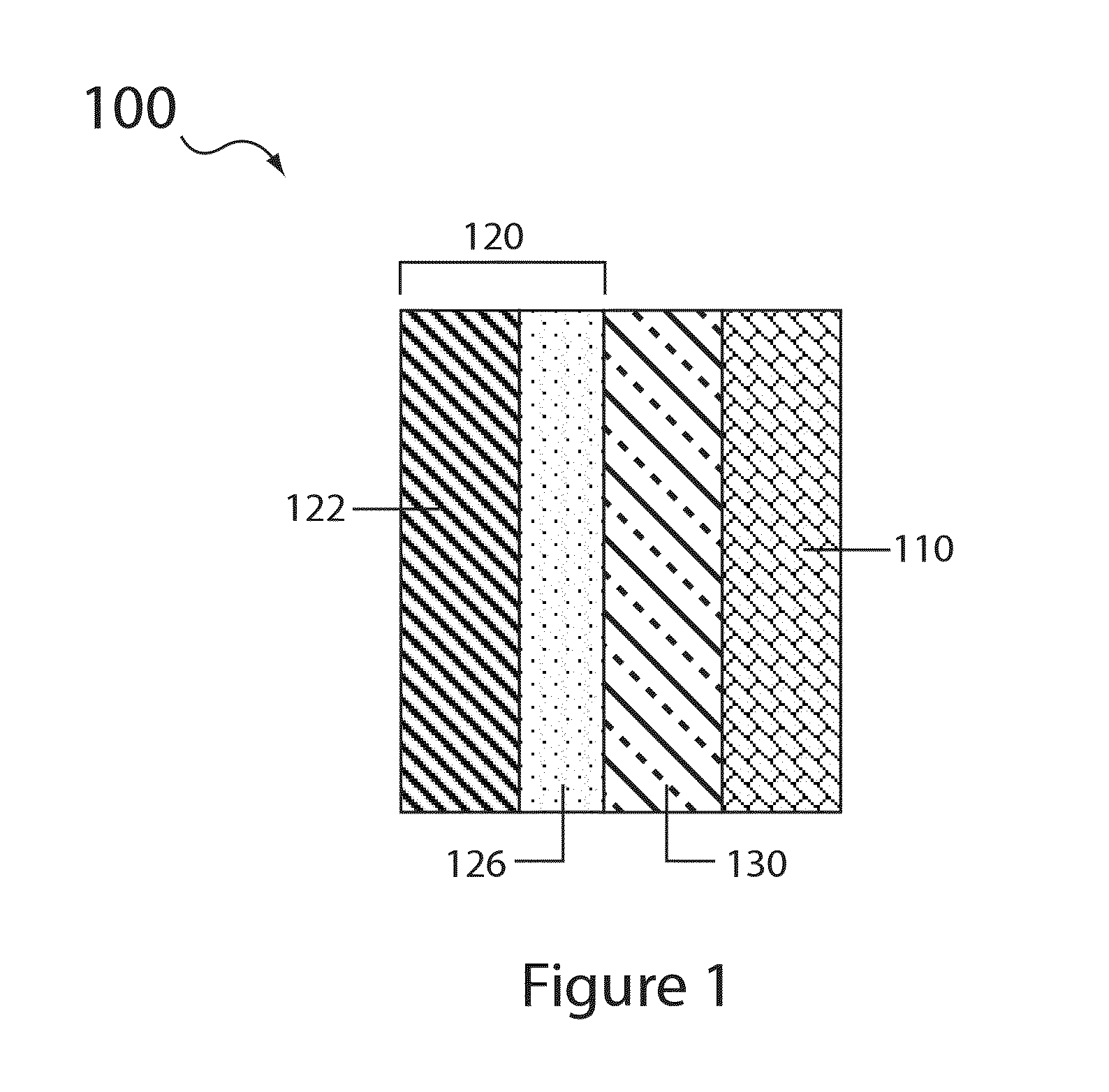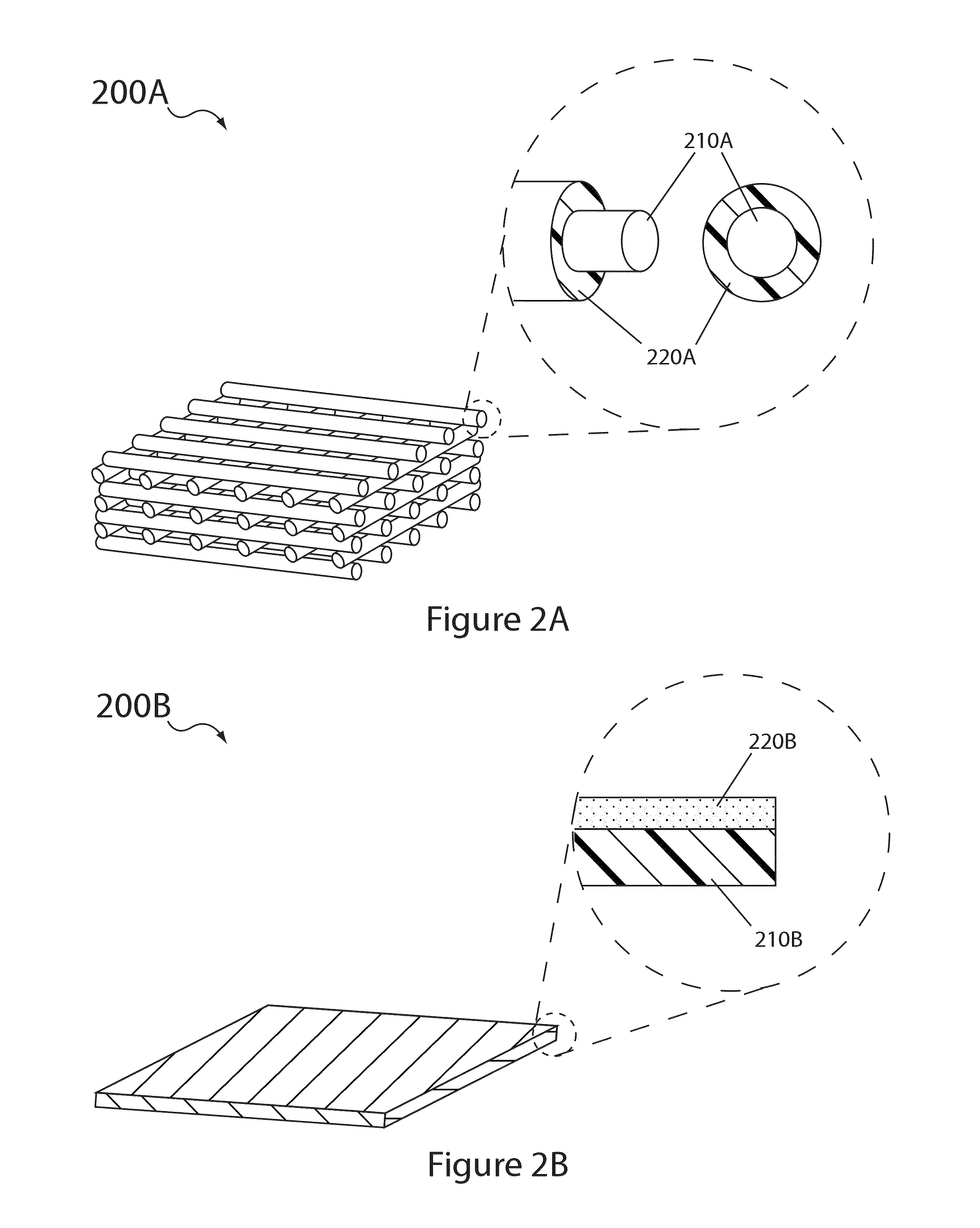Electrolyte compositions for aqueous electrolyte lithium sulfur batteries
a lithium sulfur battery, aqueous electrolyte technology, applied in the direction of non-aqueous electrolyte cells, cell components, electrochemical generators, etc., can solve the problems of preventing meaningful commercialization of li-s batteries, and achieve the effects of enhancing contact, reducing or preventing li2s hydrolysis, and maintaining cell integrity and safety
- Summary
- Abstract
- Description
- Claims
- Application Information
AI Technical Summary
Benefits of technology
Problems solved by technology
Method used
Image
Examples
example 1
[0120]This example pertains to the preparation and conductivity measurement of a first active aqueous sulfur catholyte (i.e., Catholyte #1) having water as a solvent, an active stoichiometric ratio of Li2S4, and a sulfur concentration of 10 moles / liter (molar) sulfur. The precursor chemicals Li2S and elemental sulfur are used in proper proportion to yield an active stoichiometric ratio of Li2S4. In addition to the precursor chemicals, Catholyte #1 also contains, dissolved therein, an additional basic lithium salt, specifically 0.5 molar LiOH.
[0121]The catholyte was prepared in a 25 mL volumetric flask inside a main glove box filled with argon gas (i.e., an inert gas), the glove box having oxygen concentration of less than 5 ppm (i.e., the environment in which the catholyte is made is substantially devoid of molecular oxygen). The required amount of lithium hydroxide (reagent grade, Sigma Aldrich) was weighed in a different glove box filled with dry argon having less than 2 ppm of mo...
example 2
[0122]This example pertains to the preparation and conductivity measurement of a second active aqueous sulfur catholyte (i.e., Catholyte #2) having water as a solvent, an active stoichiometric ratio of Li2S4, and a sulfur concentration of 12 moles / liter (molar) sulfur. Similar to the procedure described in Example #1, the precursor chemicals Li2S and elemental sulfur were used to effect the active Li2S4 active stoichiometric ratio. The catholyte was devoid of salts (e.g., additional lithium salts) other than those used to generate the active stoichiometric ratio of Li2S4. In particular, the catholyte was devoid of supporting lithium salts or basic lithium salts.
[0123]The catholyte was prepared in a manner similar to that for Catholyte #1, as described above in Example 1. Required amounts of the precursor chemicals (sulfur and Li2S) were mixed together, placed in a 25 mL volumetric flask, and covered with deionized and deoxygenated water up to the 25 mL mark. Notably the water is deo...
example 3
[0124]This example pertains to the preparation of a third active aqueous sulfur catholyte (i.e., Catholyte #3) having water as a solvent, an active stoichiometric ratio of Li2S4, and a sulfur concentration of 17 moles / liter (molar) sulfur. Similar to that described in Example #1, the precursor chemicals Li2S and elemental sulfur are used to effect the active Li2S4 active stoichiometric ratio. The catholyte is devoid of salts (e.g., additional lithium salts) other than those used to generate the active stoichiometric ratio of Li2S4. In particular, the catholyte is devoid of supporting lithium salts or basic lithium salts.
[0125]In order to prepare a catholyte with the highest possible active sulfur content (in the form of Li2S4), enough sulfur and Li2S were mixed to prepare 20M sulfur having an active stoichiometric ratio of Li2S4. Then the same procedure as used in Example 2 was followed. After stirring overnight, the solution was not clear and contained undissolved solids. The solut...
PUM
| Property | Measurement | Unit |
|---|---|---|
| donor number | aaaaa | aaaaa |
| pH | aaaaa | aaaaa |
| critical voltage | aaaaa | aaaaa |
Abstract
Description
Claims
Application Information
 Login to View More
Login to View More - R&D
- Intellectual Property
- Life Sciences
- Materials
- Tech Scout
- Unparalleled Data Quality
- Higher Quality Content
- 60% Fewer Hallucinations
Browse by: Latest US Patents, China's latest patents, Technical Efficacy Thesaurus, Application Domain, Technology Topic, Popular Technical Reports.
© 2025 PatSnap. All rights reserved.Legal|Privacy policy|Modern Slavery Act Transparency Statement|Sitemap|About US| Contact US: help@patsnap.com



